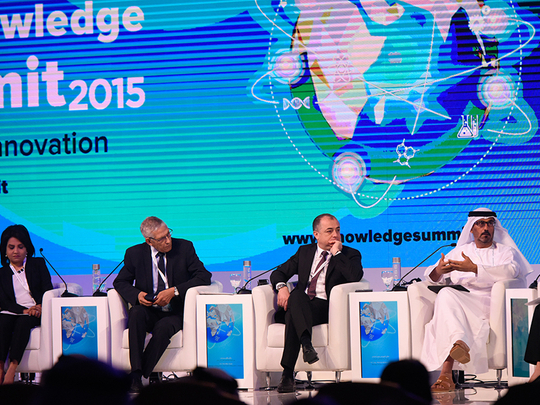
Dubai: Gordon Brown, former British Prime Minister and United Nations Special Envoy for Global Education, on Monday commended the Lebanese government for taking in 200,000 Syrian refugees and called on more governments to enable refugge children to enrol in schools. He was speaking on the first day of the Knowledge Summit 2015.
“The Minister of Education in Lebanon almost single-handedly brought 200,000 Syrian refugee children into schools despite [many] difficulties his country is facing,” said Brown. “He has made it his business to make sure refugees have a right to education and I want to praise him,” he said.
Elias Bu Saab, Minister of Education and Higher Education in Lebanon, said at the summit that there are more than 250,000 Lebanese students in public schools and an additional 400,000 Syrian refugees of school-going age in Lebanon are currently hoping to be enrolled.
“To overcome this challenge, we had to devise night shifts and morning shifts at schools to be able to take in as many students as possible,” said Bu Saab, who plans on taking in more refugees with the help of international organisations.
Brown said other countries can follow Lebanon’s example and provide education to the two million refugee children in this region. Governments must commit to make global education a priority, he said.
Existing schools for refugees in Turkey and Jordan, he said, can adopt a two-shifts-a-day policy, an initiative that is possible due to the availability of many unemployed teachers in the region and the Syrian refugee teachers who would want to work.
The challenge however, said Brown, would be to address the funds deficit as only 2 per cent of humanitarian funds currently go to education. An additional sum of $250 million needs to be invested in global education, he said, which is not a big amount if the US, Europe and the region agree to contribute $80 million each.
Such a move would enable countries like Lebanon to provide education to all 400,000 refugees, he observed.












